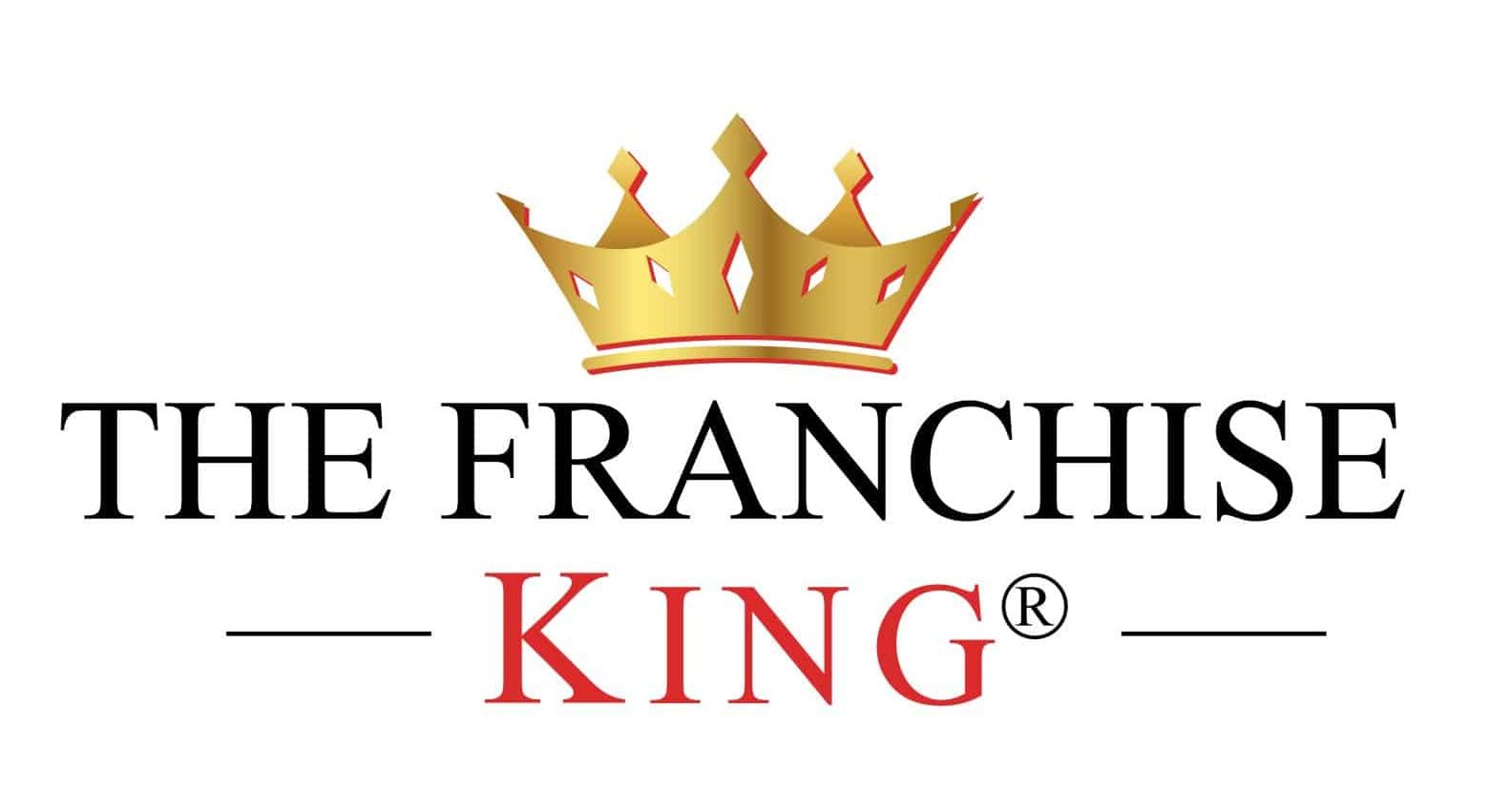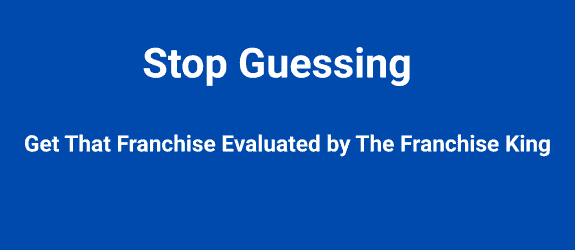
It looks like the California Senate Bill 919 that regulates how franchise brokers can do business in the state is almost ready for prime-time.
Note: the official name of the California bill is:
Franchise Investment Law: franchise brokers. Anyway…
This means that if you’re a franchise broker, you’ll need to register and pay a fee to sell franchises in California. And…
As part of the new California SB 919 franchise broker bill, you’ll need to disclose how you are paid. Specifically.
With that in mind, please read the summary of the new bill. Then check out my take, as a former franchise broker, on it.
California Senate Bill 919: The Particulars
Here’s a summarized version of the bill, section by section, with it’s latest amendments.
SB 919: Comprehensive Overview of the California Franchise Bill
Section 31020: Definition of Third-Party Franchise Sellers
The bill introduces the term “third-party franchise seller,” covering individuals or entities engaged in the business of offering or selling franchises for compensation.
This includes franchise brokers, broker networks, and sales organizations. But, it excludes franchisors, sub-franchisors, area representatives, their officers, directors, and employees, as well as certain franchisees who do not operate broker businesses.
According to the AAFD:
“Senate Bill 919 represents a significant step toward increasing transparency and accountability in the franchise industry. By introducing a registration requirement for franchise brokers, the bill strengthens protections for franchisees, ensuring that prospective franchise buyers receive fair and accurate information when making critical business decisions.”
Section 31210: Legal Requirements for Franchise Sales
To legally sell franchises in California, individuals or entities must meet specific criteria.
In other words, they must be identified in a franchise disclosure document or hold the appropriate licenses, such as a real estate broker’s license or registration as a third-party franchise seller. This ensures that all parties involved in the sale of franchises are properly vetted and authorized, maintaining transparency and accountability.
Section 31300: Liability for Violations
The bill outlines the consequences for violating franchise laws. Sellers who breach Sections 31101, 31110, 31119, 31200, or 31202, among others, are liable for damages to franchisees or sub-franchisors.
And if the violation is willful, franchisees may sue for rescission. However, defendants can avoid liability by proving the plaintiff knew the true facts or that reasonable care was exercised to prevent the untruth or omission.
Section 31500: Fees and Charges
This section details the fees associated with franchise operations.
Initial registration of franchise offers costs $675, while renewals are $450. Amendments and material modifications incur additional fees, ensuring that the state can manage and oversee the franchise operations effectively.
Registration as a third-party franchise seller costs $250, emphasizing the importance of regulation in maintaining fair business practices.
Required: Franchise Broker Registration
Section 31520: Registration Process for Third-Party Sellers
Third-party franchise sellers must complete a registration process that includes submitting a disclosure document and other required materials.
The registration is effective upon filing and paying fees, and it expires at the end of the calendar year. This process ensures that all sellers are credible and informed about their responsibilities and the legal framework they operate within.
Section 31521: Notification of Material Changes
Registered sellers must promptly report significant changes in their disclosure information, such as litigation history, services offered, or compensation methods.
This requirement maintains the integrity and accuracy of information provided to prospective franchisees, helping them make informed decisions.
Section 31522: Enforcement via Stop Orders
The bill grants the commissioner the authority to issue stop orders if a seller fails to comply with regulations.
This power is crucial for enforcing compliance and protecting prospective franchisees from potentially harmful business practices. Sellers can request a hearing if they receive a stop order, ensuring due process.
California Senate Bill 919: Franchise Broker Records And More
Section 31523: Record Maintenance Requirements
Sellers must maintain detailed records of their franchise offers for five years.
This requirement aids in audits and investigations, ensuring that all transactions are transparent and traceable, thereby fostering trust in the franchise system.
Section 31526: Disclosure Document Requirements
Before engaging in franchise discussions, sellers must provide a comprehensive disclosure document.
This document, which can be delivered electronically, includes critical information about the seller’s business, legal history, and compensation. It serves as a vital tool for prospective franchisees to understand the nature of the seller’s operations and any potential risks involved.
Section 31527: Detailed Disclosure Document Contents
The disclosure document must contain extensive information, including the seller’s legal name, trade name, business history, litigation history, and compensation details.
In addition, it lists all franchisees sold to in the past year, providing transparency and helping prospective buyers assess the seller’s credibility and track record.
Section 31528: Effective Date
The regulations set forth in this bill will become operative on January 1, 2026. This timeline allows businesses and regulatory bodies sufficient time to prepare for and adapt to the new requirements.
Section 6: No Reimbursement Required
The bill specifies that no reimbursement is required under the California Constitution.
This is because the act pertains to creating or modifying crimes and penalties, which are not subject to reimbursement provisions.
What The IFA Says About The California SB 919 Franchise Broker Bill
Let me start off by saying I was surprised that some of the most influential members of The International Franchise Association (IFA) got involved in the bill. Because this franchise broker bill will affect a number of its members-and cost them money.
On that note, here’s a recent headline from the IFA’s media center:
IFA Applauds Senate Passage of California Franchise Seller Bill
And here’s what Matt Haller, the IFA’s CEO says about it:
“Third-party franchise sellers play a vital role in the franchise model, and this legislation provides greater clarity of the various parties engaged in the franchise sales process to prospective franchisees.”
He goes on:
“Responsible Franchising includes improved disclosure and ultimately leads to stronger franchise relationships in the long term. This bill is a critical step forward in providing franchisees with more of the information they need before making an investment – with only minimal resources necessary to implement the new requirements.”
And here’s what the FBA thinks about the bill.

Note: Sabrina Wall, CEO of the FBA, sent some material to the California Senate for consideration (amendments). And here’s part of a comment she made about the bill-from a LinkedIn thread:
“The act unfairly targets franchise brokers, creating a disadvantage compared to other industry professionals. This is concerning as franchise brokers could face more risks in California if this passes. Additionally, the legislation could expose lead vendors, attorneys, and even accountants to unnecessary liabilities.”
Sabrina goes on:
“This is a call for action. We must ensure that the act is refined to protect responsible franchising and avoid stifling growth. Let’s work together to clarify this legislation and ensure it serves the best interests of franchising.”
The New Franchise Broker Bill: My Take As An Ex-Franchise Broker
I’m not going to go through California SB 919, the franchise broker bill line-by-line.
That said, I can tell you right now that franchise brokers don’t like this bill. And if I was still a franchising broker, I wouldn’t either. Why?
Because the dollar amount of their commissions for being a franchise seller are going to be public.
In addition, the bill is going to solidify their role in the transaction. In the sale of a franchise to an individual.
By that, I mean it’s going to show prospective franchise owners who the franchise broker’s client really is.
Hint: it’s not them. It’s the franchisors.
My feeling on the bill is that it’s much-needed. Why?
Because franchise brokers tend to come across as working for the people who want to buy a franchise. They want to “help” people become franchisees. By steering them only to franchise opportunities they have sales contracts with.
Bottom line?
By showing prospective franchisees (franchise candidates) who the franchise broker’s work for and how much they get paid, the candidate will have a clearer picture of a broker’s role in the process.
Finally, it looks like this bill aims to foster a more transparent environment for franchise transactions in the state of California.
Will other states adopt the bill?
Only time will tell.
September 20, 2024 Update: California Governor, Gavin Newsom, signed the bill.
(Main image courtesy Wikimedia)
About the Author
The Franchise King®, Joel Libava, is a leading franchise expert, author of "Become a Franchise Owner!" and "The Definitive Guide to Franchise Research." Featured in outlets like The New York Times, CNBC, and Franchise Direct, Joel’s no-nonsense approach as a trusted Franchise Ownership Advisor helps aspiring franchisees make smart, informed decisions in their journey to franchise ownership. He owns and operates this franchise blog.
Note: When you buy through links on this website, we may earn an affiliate commission.









